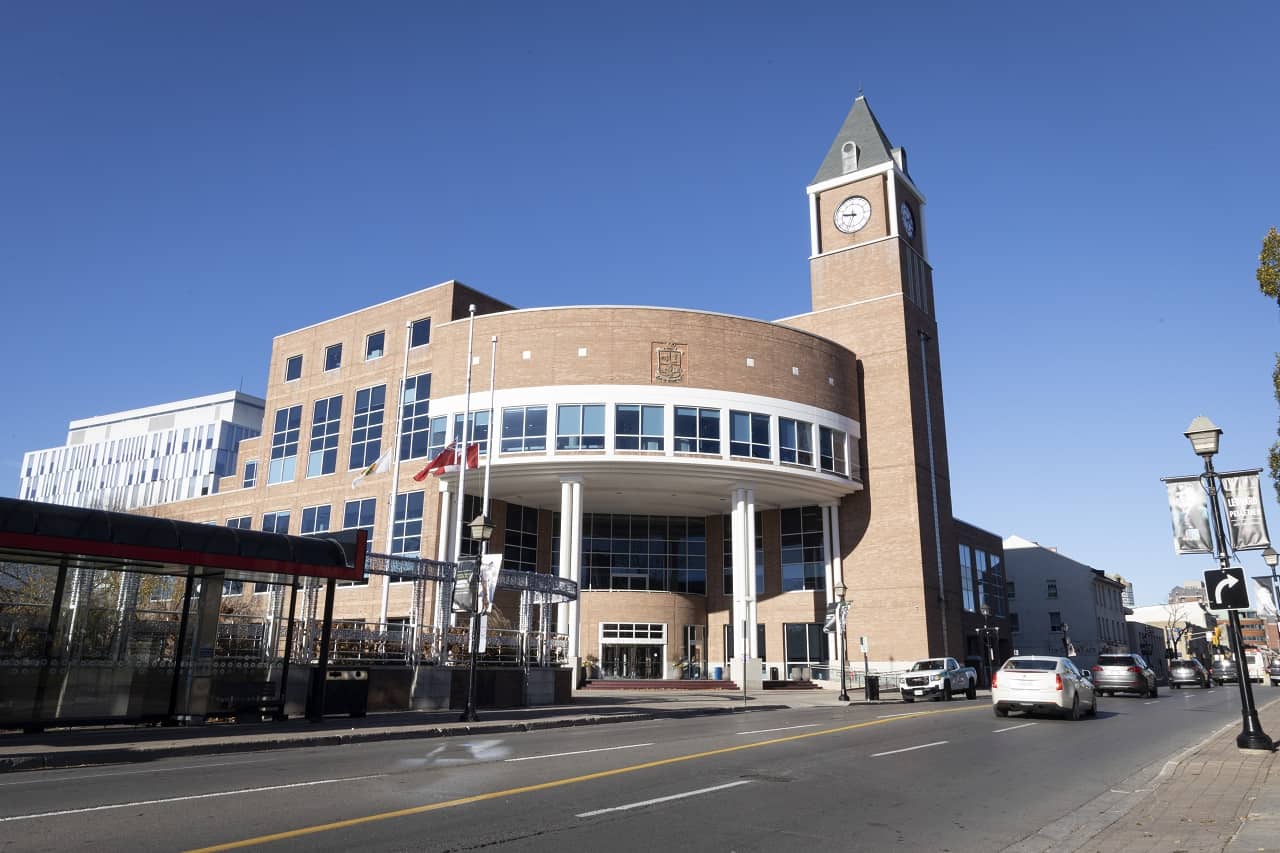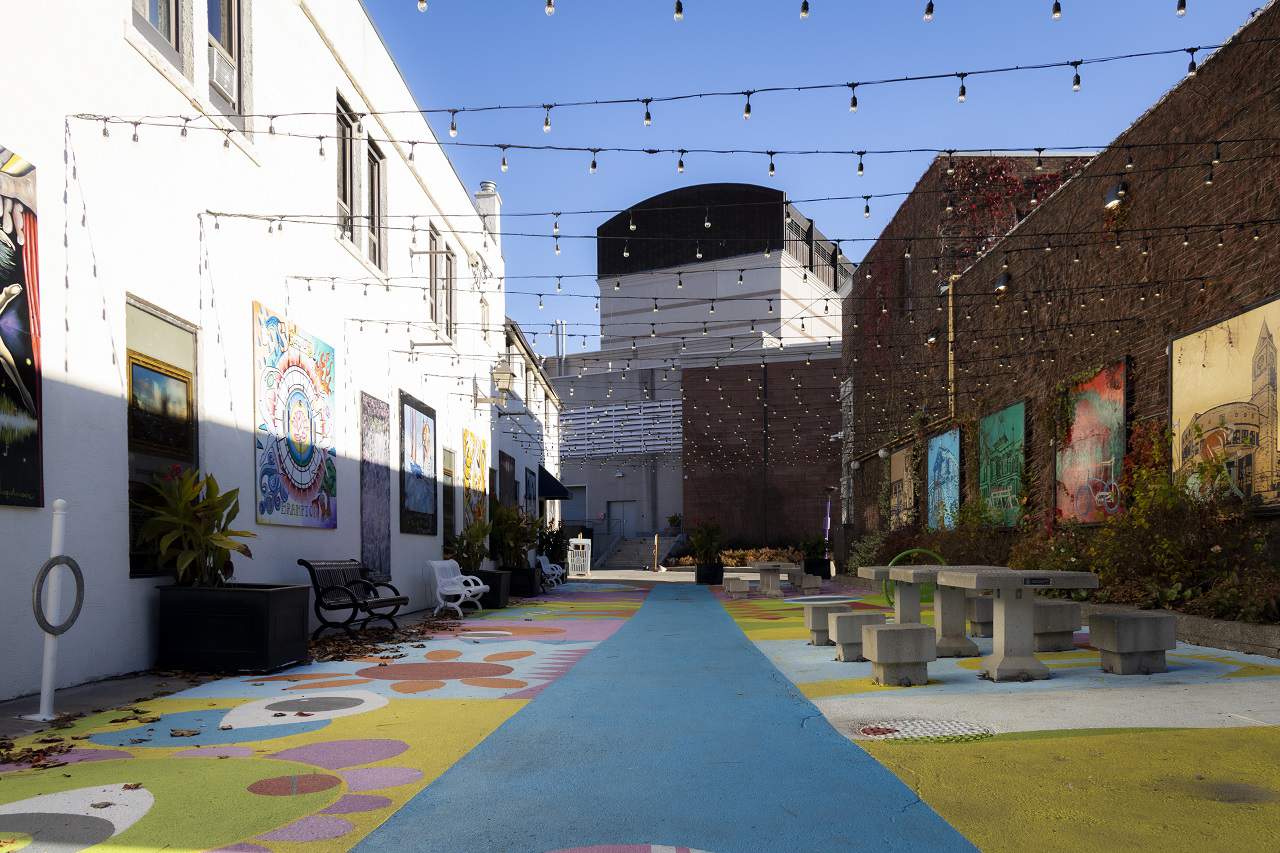Unique program at Brampton’s Algoma University goes beyond traditional classroom learning
Published January 24, 2023 at 3:57 pm

After decades of having the program at its other two campuses, Algoma University is bringing its Community, Economic and Social Development (CESD) program to Brampton – described as the only undergraduate program of its kind in all of Canada.
CESD aims to teach students the knowledge and skills needed to create real change in communities across Canada, with a special emphasis on work in northern and rural areas. It integrates several disciplines including social work, sociology, political science, geography, economics, and business administration.
The program began 20 years ago and was the first of its kind in Canada at the time. It is the result of a close relationship between faculty members and the community of Sault Ste. Marie – the location of Algoma’s first campus.
Together, they grounded the program in the principles of experiential learning and co-development.
“CESD came out of a need to see development differently,” explains Dr. Laura Wyper, Department Chair and Assistant Professor. She believes development efforts must respect the culture and traditions of communities, while offering new and innovative solutions to problems.
“As practitioners, we strive to follow equity-based principles so that we’re not perpetuating historical injustices.”
The program in Brampton
The 2022-23 academic year marks the first year that CESD is offered on Algoma’s Brampton campus.

“We listened to our students,” says Jamal Muckett-Sobers, Manager of Brampton operations for Algoma University. “They expressed the real demand that exists in Brampton for Algoma University to have a stronger presence in terms of programs and physical capacity. At the same time, the city is an ideal fit for us. Its diversity corresponds perfectly with our school’s emphasis on cross-cultural learning.”
Algoma’s commitment to its Special Mission is important to the CESD program’s implementation at the Brampton campus. The university hopes to engage with the local community to build a program that can respond to the community’s needs and context.
“The program will offer the same courses as a foundational learning objective method,” said Dr. Wyper, “but it will look different than it looks in Sault Ste. Marie. We’ll be working hard to ensure that we’re listening to the community as we build the Brampton program.”
Community members who are interested in getting involved with the program are encouraged to reach out to Dr. Wyper directly. “We’re going to be looking for student placements and community advisory committee members,” Dr. Wyper explains. “Those long-term relationships from placements are things we hope to begin to build in Brampton as well. Students will be actively involved and making a difference in the community.”
A different approach to the classroom
CESD courses explore a wide variety of topics, such as community-based research methods, entrepreneurship, development, environment and resilience. Faculty take a contemporary approach to the classroom learning environment. “We don’t follow traditional lecture styles,” Dr. Wyper says. “We use more of a progressive education pedagogy so that students are constantly learning from each other, learning with and from the instructor, and the instructors are learning from the students.”

This flexibility and openness offer unique opportunities that might not be available to students in other universities. This year, a cohort of students from one CESD course travelled to Italy to participate in an international event that explores food biodiversity, cultural practices and traditions related to food. The week-long trip gave students the opportunity to participate in readings and discussions, and attend a conference that brought together field experts, academics and practitioners.
When they returned, students completed assignments that enabled them to delve into what they learned. This hands-on experience underscores the way that CESD successfully integrates the real world with the classroom.
Learning in and with communities
Sustainable community development prioritizes a community’s needs and unique landscape. That’s why CESD offers third- and fourth-year students the opportunity to learn firsthand through placements and practicums.
“This is something we’ve been doing for decades,” says Dr. Wyper. “The ideas of theory, practice, reflection, and reflexivity have always been foundational to this program.” The last few decades of the program have given CESD a diverse roster of community partners and organizations where students have completed placements.

For many program alumni, these placements have opened doors to employment opportunities. “Our students do incredible work while they’re with the agencies in their placements and that can carry on afterwards,” says Dr. Wyper. School internships sometimes turn into full-time positions as a researcher, policy analyst or development officer.
Get in touch
Anyone interested in learning more about the program can visit the Community, Economic and Social Development program’s website for more info.
Brampton residents who want to get involved in the program can also reach out to Dr. Laura Wyper directly.
More about Algoma University
Algoma University is one of the GTA’s biggest public universities, located at 24 Queen St East in downtown Brampton. In addition to the CESD, the school is known for having an excellent computer science program and being the first school in Ontario to offer a Business of Esports program.
Other programs offered at the school include Marketing, Accounting, Finance and Economics, Human Resources, and a unique Aviation program that allows students to take to the sky and earn their pilot’s license.
Located in the heart of downtown Brampton, Algoma University’s Brampton campus combines accessible convenience with innovation. It’s located just a few minutes away from the Brampton GO station and downtown Brampton bus terminal for easy commuting, and is nearby some of the city’s most popular attractions: Garden Square, Rose Theatre, PAMA, Brampton Library’s Four Corners Branch, YMCA, Gage Park, and downtown shops and restaurants.

With campuses in Brampton, Timmins, and Sault Ste. Marie, Algoma promises a community-oriented, cross-cultural learning experience no matter which campus you attend. Click here to schedule a campus tour.
For more information about Algoma University, visit the school’s website, Facebook, Twitter and Instagram (@algomau, @aubrampton and @discoveralgomau.
INsauga's Editorial Standards and Policies